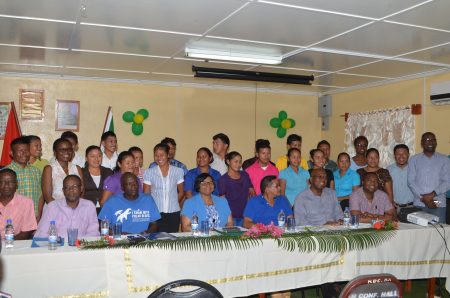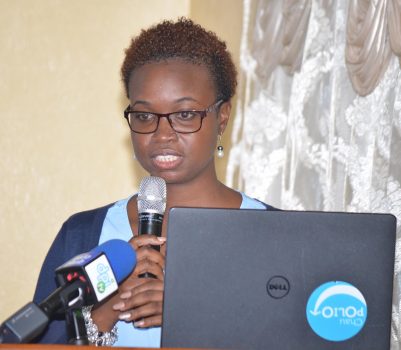Twenty Community Health Workers (CHWs) of Region Nine are embarking on training to deliver improved maternal and child health care in the region.
The Department of Public Information (DPI) yesterday said that the training has been made possible through an Inter-American Development Bank (IDB) loan which was granted to the Government of Guyana in February 2017. The US$8M loan will be employed to improve the level of reproductive healthcare delivery in Guyana.
Over the next five years the reproductive, neonatal and maternal health services in Regions Three, Four and Nine will be bolstered, DPI said.
The Director of the Maternal and Child Health Programme of the Ministry of Public Health, Dr. Ertenesia Hamilton said, “In looking at the situation which exists in Guyana it was recognised that all of our maternal deaths that we had over the last ten years could be grouped under three main headings.” These she described as the three ‘delay’ models – delay in seeking care, delay in reaching care and the delay in receiving care.


Region Nine, the only hinterland region to be covered by the loan has faced many challenges and this was why it was selected to pilot the project.
Minister of Public Health, Volda Lawrence told the CHWs awaiting training that they will be responsible for a reduction in maternal and neonatal mortality in the region.
“You represent the various communities in Region Nine and are therefore well placed to respond to the needs of the people. In administering the programme within the region, the curriculum which is designed to cover all pertinent aspects of maternal and reproductive health and childcare, the finished product…you are going to help us to reduce the mortality rate in this region.”
The minister cited statistics from the IDB which show that Guyana is among those countries in the Caribbean and Latin America to record high rates of mortality in neonates and pregnant mothers
“The estimated figures revealed that (in Guyana) there is 121 per 100,000 live births and 23 per 1,000 live births respectively, this is by the IDB 2016 report”, Lawrence stated.
DPI said that the minister called for the relevant authorities to consider having the main access roads from North to Central Rupununi and South to Central Rupununi upgraded.
Most of the maternal deaths recorded in the region were as a result of poor access to health care facilities. The main access roads as they are in the Rupununi are considered rough terrain for pregnant women to traverse whether with ambulance or hired transportation, Lawrence said.
At the end of the training CHWs can be likened to nurses and midwives within the respective areas, DPI said. These workers will be trained for six months.
DPI said that the training will focus on personal hygiene and environmental health, basic anatomy and physiology, clinical practice procedures and maternal and child health among other relevant areas.




